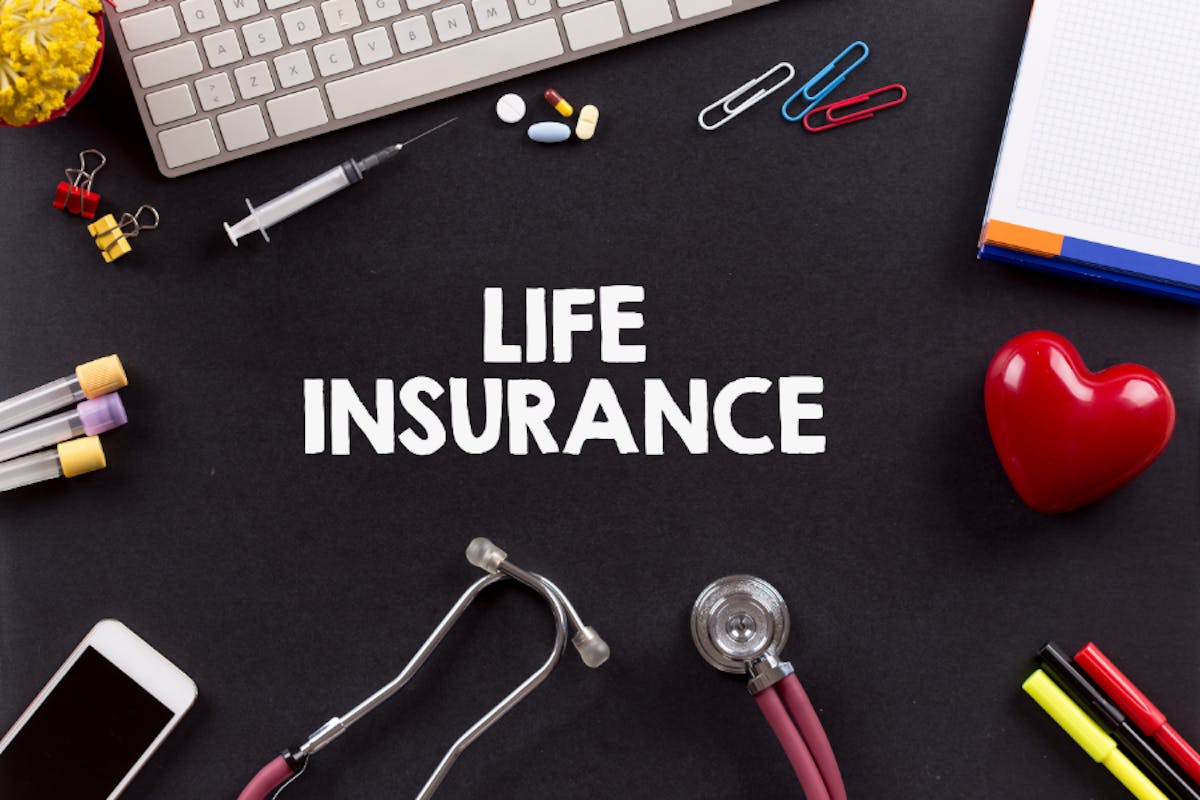Insurance Services
Business Insurance
Commercial business insurance provides a wide range of protection for contractors and restaurant owners, that take care of property, liability and workers' compensation, to name a few.

Business Insurance Options
As a contractor, you have enough on your mind, without having to worry about your insurance needs. You want to have the confidence that the business you've built is covered by a company that understands your specific business insurance needs.
Commercial business insurance provides wide-ranging protection for businesses and their subsidiaries under a single policy. There are various types of commercial business insurance that take care of property, liability and workers' compensation, to name a few. While property insurance covers damages to business property and products stored within the premises; liability insurance provides coverage for damages to third parties; and workers' compensation insurance covers injuries to employees.
Commercial business insurance is an important aspect of any business that cannot be ignored especially if the business premises are leased or rented and even otherwise. Whatever your commercial insurance needs, we can design a protection program that's right for you.
Cal Commercial Insurance provides the following types of business insurance protection:
- Contractor's General Liability Insurance
- Workers' Compensation Insurance
- Builders' Risk Insurance
- Commercial Auto Insurance
- Commercial Property Insurance
- Commercial Umbrella Insurance
- Surety Bonds
Contractor’s General Liability Insurance
Contractor's General Liability insurance is for residential and commercial builders, general contractors, construction managers, design and build firms, specialty contractors or subcontractors, and owners of public and/or private construction projects. We offer contractor policies for every type of project:
- Property
- Builders risk insurance and course of construction
- Liability insurance
- General liability insurance
- Contractor insurance
- Commercial auto
- Umbrella
- Workers' compensation
- Equipment insurance
- Contractor bond
Workers’ Compensation Insurance
Workers' compensation insurance protects employers from claims resulting from injuries to employees. It protects your business from lawsuits and provides employees with compensation for on-the-job injuries. By law, most employers are required to provide coverage for lost wages and medical bills incurred as a result of on-the-job accidents or illnesses. For many businesses, workers' comp coverage is the largest part of its insurance expense.
Builders’ Risk Insurance
Builder's risk insurance is a policy that is designed to provide coverage for buildings while under construction. It covers the contractor’s interest in materials at the job site before they are installed, materials in transit intended for the job, and the value of the property being constructed until it is completed and accepted by the owner. The policy may be written to cover the whole structure for new construction or the cost of remodeling and renovation projects. It can also be used to cover specific projects, such as a new room addition, a deck, or a remodeled bathroom.
 Builder's risk insurance usually is in the name of the contractor or the property developer, but it could also be in the name of the property owner if he is responsible for insuring it while the property is under construction. Both commercial and residential construction sites might be covered under a builder's risk insurance policy.
Builder's risk insurance usually is in the name of the contractor or the property developer, but it could also be in the name of the property owner if he is responsible for insuring it while the property is under construction. Both commercial and residential construction sites might be covered under a builder's risk insurance policy.
There are also additional built-in schemes for the specialized needs of a particular construction project, whether it's commercial or residential. Often, insurance companies request a certain level of experience of the builder before they provide insurance coverage for their commercial sites. Usually, an experience level of 2-3 years in commercial construction is desired.
An additional option that can be attached with builder's risk insurance coverage is the movement of earth. If the construction is extremely large, then the cost of moving earth from the digging site could amount to a great deal.
A builder's risk insurance policy is essential for people who have a financial interest in property construction, either commercial or residential. It doesn't mean only new construction, but also any remodeling or renovation project.
If any damage to construction material occurs in transit or during storage, then this cost could also be covered under a builder's risk insurance policy.
Commercial Auto Insurance
A commercial auto insurance policy is required under most circumstances when the  vehicle is used for business purposes and meets certain other requirements. It is not just the registration that determines the requirement for a business automobile insurance policy. Other requirements are ownership by a corporation, use in hauling goods for hire and gross vehicle weight of the vehicle. Some small trucks can be owned and insured under a personal automobile insurance policy under specific circumstances.
vehicle is used for business purposes and meets certain other requirements. It is not just the registration that determines the requirement for a business automobile insurance policy. Other requirements are ownership by a corporation, use in hauling goods for hire and gross vehicle weight of the vehicle. Some small trucks can be owned and insured under a personal automobile insurance policy under specific circumstances.
Commercial automobile insurance policies are not regulated in pricing, as are private passenger policies. There is price competition between insurance companies for good commercial automobile insurance.
Commercial Property Insurance
Commercial property insurance is a special type of insurance that covers the company building as well as the contents owned by the company. "Property" can include a variety of types: lost income or business interruption, buildings, computers, money, and valuable papers.
Under the liability policy coverage, the building should be protected from damaging events such as fire, burglary and vandalism. It may not be enough to cover just the building; the aftermath of such damage should be covered as well.
Commercial Umbrella Insurance
If you own a business, you probably own some form of general liability insurance to protect you in the event of a lawsuit due to negligence on your part. However, there may be situations where the limits of your general policy may not provide adequate protection. A commercial umbrella can provide you and your business with additional liability protection.
Surety Bonds
Surety Bond is a three-party agreement whereby the surety guarantees to the obligee (the project owner) that the principal (the contractor) is capable of performing the contract in accordance with the contract documents. Performance of the contract, which is the subject of the bond, determines the rights and obligations of the surety and the obligee. Here are the eight different families of surety bonds:
- Fidelity Bonds
- Public Official Bonds
- Judicial Bonds
- Fiduciary Bonds
- License and Permit Bonds
- Contract Bonds (Bid and Performance Bonds)
- Miscellaneous and Federal Bonds
- Notary Bonds
Restaurant Insurance
Cal Commercial Insurance helps protect restaurant owners with a comprehensive restaurant insurance program for your business and employees.

The restaurant industry is a high-risk business. There's an enormous amount of competition and a lot of details to perfect. According to an often quoted study, 60 percent of restaurants don't make it past their first year and 80 percent go out of business within five years.
Now, due to COVID-19, as many as 85% of independent restaurants could close by the end of the year, according to a new report commissioned by the Independent Restaurant Coalition that details the impacts of the coronavirus on the restaurant industry. How can restaurant owners ensure their restaurant’s success?
Problem - Managing Costs and Budgets:
 Running out of money is one of the biggest challenges restaurant owners face today. Not calculating the budget to include unexpected emergencies might bring a restaurant close to needing to file for bankruptcy.
Running out of money is one of the biggest challenges restaurant owners face today. Not calculating the budget to include unexpected emergencies might bring a restaurant close to needing to file for bankruptcy.
Food is the thing that will cost the most, as a restaurant owner. There are many factors affecting food cost control. They include the menu, the cost of food ingredients, the transportation costs, proper storage, food waste, and pricing of the menu items. In addition to the cost of food, restaurant owners also have employee salaries to pay, rent, taxes, insuring the business, marketing, and equipment to buy and maintain.
Our Solution:
Restaurant insurance coverage is a must and the costs can add up. Cal Commercial  Insurance offers guidance on the best restaurant insurance programs for your unique restaurant. Our insurance agents will thoroughly explain the specific insurance coverage that best suits your restaurant and employees.
Insurance offers guidance on the best restaurant insurance programs for your unique restaurant. Our insurance agents will thoroughly explain the specific insurance coverage that best suits your restaurant and employees.
We have chosen to work with insurance carriers who prefer to insure restaurants, so the restaurant insurance quotes you receive from our agency, will help you manage your insurance costs and budget.
Cal Commercial Insurance provides restaurant insurance coverage for restaurant owners throughout California.
- Commercial General Liability Insurance
- Commercial Property Insurance
- Commercial Auto Insurance
- Workers’ Compensation Insurance
- Commercial Umbrella Insurance
We help insure restaurants ranging from cafes and donut shops, to fine dining restaurants with up to 75% in liquor sales. In addition, our insurance pricing is rated on sales and can include additional protection like up to $100,000 in cyber coverage and up to $250,000 for Employment Practices Liability insurance.
Problem - Providing Health Care Coverage:
 Restaurant owners also need to factor in health care expenses. Through the Affordable Care Act, the Employer Shared Responsibility Payment provision of the Act stipulates that businesses with more than 50 full-time "equivalent" employees must provide health care coverage, or face financial penalties. The financial penalties are high for not offering affordable health care coverage to full time employees, and the lack of ACA reporting to the IRS, stacks even higher penalties. Navigating through this process to understand the law and the options can be difficult.
Restaurant owners also need to factor in health care expenses. Through the Affordable Care Act, the Employer Shared Responsibility Payment provision of the Act stipulates that businesses with more than 50 full-time "equivalent" employees must provide health care coverage, or face financial penalties. The financial penalties are high for not offering affordable health care coverage to full time employees, and the lack of ACA reporting to the IRS, stacks even higher penalties. Navigating through this process to understand the law and the options can be difficult.
Our Solution:
Our health insurance agents are familiar with ACA regulations and can provide guidance on how to keep you and your restaurant compliant.
The types of employee benefits offered include:
- Employee Group Health Insurance
- Employee Group Dental Insurance
- Employee Group Vision Insurance
- Employee Group Life Insurance
- Supplemental Insurance
- Health Reimbursement Arrangement
- Health Savings Accounts
Contact our agents today so we can guide you through the best restaurant insurance coverage and companies for you! We'll be happy to provide fast, no-obligation quotes at no charge.
Employee Group Benefits
Cal Commercial Insurance offers a complete line of insurance and group benefits for employers ranging from group health insurance to life and HRAs.

Empoyee Group Benefits
Cal Commercial Insurance offers a complete line of insurance and group benefits for employers ranging from group health insurance to life and HRAs. Many businesses today face challenges in attracting and retaining top employees. As a business owner, you know the importance of employee benefits and their contribution to your business success. We will work with you to develop a program tailored to your individual circumstances. These products and services are designed to provide solutions to your personal and business financial needs, including:
- Group Health Insurance
- Group Dental Insurance
- Group Vision Insurance
- Group Life Insurance
- Health Reimbursement Arrangement
Group Health Insurance
 In today’s environment, offering the right health insurance benefits can be a challenge. You want to provide the best possible plan for your employees, yet it must also be cost efficient for your business. Cal Commercial Insurance is committed to health insurance for both our commercial customers, who need group coverage for their employees, as well as the individual or family that needs coverage. With the changing face of health insurance in today's market, we are staying abreast of the latest developments that will affect the coverage you expect as well as the cost impact upon you. We have the wide array of health insurance options available in our area, and we will always present to our customers the best options at the best price available.
In today’s environment, offering the right health insurance benefits can be a challenge. You want to provide the best possible plan for your employees, yet it must also be cost efficient for your business. Cal Commercial Insurance is committed to health insurance for both our commercial customers, who need group coverage for their employees, as well as the individual or family that needs coverage. With the changing face of health insurance in today's market, we are staying abreast of the latest developments that will affect the coverage you expect as well as the cost impact upon you. We have the wide array of health insurance options available in our area, and we will always present to our customers the best options at the best price available.
Group Dental Insurance
Group dental insurance is one of the benefits most requested by employees. Many employers provide dental insurance for their employees, but a growing number of employers are offering this as a voluntary benefit that is paid 100% by the employee through payroll deductions. Most dental plans provide full coverage with a 100% benefit for preventive exams & cleanings, an 80% benefit for basic services such as fillings and root canals, and 50% benefit for major services and prosthodontics such as dentures, crowns, etc.
Some dental insurance companies provide a dental buy-up plan which allows the employer to purchase a base plan, while employees purchase additional benefits as needed. Another newer option for dental insurance is a dual option plan that allows each employee to choose a basic plan or a more comprehensive plan based on his needs. This is a voluntary benefit, which means that each employee gets the coverage he needs for himself and his family.
Group Vision Insurance
A group vision insurance plan is especially attractive for employers because it is  inexpensive to offer, yet it's another employee favorite. This is a separate plan that provides coverage for eye exams and/or for frames, lenses and contact lenses.
inexpensive to offer, yet it's another employee favorite. This is a separate plan that provides coverage for eye exams and/or for frames, lenses and contact lenses.
Many times the basic health insurance plan may provide for routine eye examinations; however, it will usually not provide any benefit for frames, lenses or contact lenses. This is where a separate group vision benefit would be used.
Group Life Insurance
Group life insurance is an integral part of most employee benefits packages. When provided by an employer, employees appreciate the value of life coverage and the additional security it provides to their families.
Employers have a wide variety of optional plan designs to customize a group life insurance plan. Optional coverages include voluntary life insurance, supplemental life coverage, accidental death and dismemberment policies, and dependent life insurance. The premium paid for group life insurance is generally a business deduction, and this stand-alone contract is usually less expensive than the life coverage provided with medical/health insurance.
Health Reimbursement Arrangement
A health reimbursement arrangement (HRA) is a tax-advantaged benefit that allows both employees and employers to save on the cost of health care.
HRA plans are employer-funded medical reimbursement plans. The employer sets aside a specific amount of pre-tax dollars for employees to pay for health care expenses on an annual basis. Based on the plan design, HRAs can generate significant savings in overall health benefits.
The primary requirements for an HRA are that (1) the plan must be funded solely by the employer and cannot be funded by salary reduction, and (2) the plan may only provide benefits for substantiated medical expenses.
HRAs may be designed in many fashions to suit the specific needs of the employer and employees. It is one of the most flexible types of employee benefit plans making it very attractive to most employers.
Life Insurance
Cal Commercial Insurance offers a broad array of life insurance products and services from many well-known companies to help you determine your best path forward.

Life Insurance Options
Cal Commercial Insurance offers a broad array of life insurance products and services from many well-known companies to help you determine your best path forward.
Some of the products we offer include:
- Indexed Universal Life Insurance
- Universal Life Insurance
- Term Life Insurance
- Whole Life Insurance/Final Expense
- Fixed Annuities
- Long Term Care Insurance
- Disability Insurance
Challenges You May Face
There is usually one obstacle or another that gets in the way of planning for your financial future.
 Big Debt & Little Savings
Big Debt & Little Savings
Debt, particularly credit card debit, is a big concern for many families. In 2017 the total credit card debt owed by consumers was $931 billion. On average, a household carried $15,983 of this type of debt and those with revolving credit card debt pay $904 in interest per year. Are you concerned about the amount you owe?
Additionally, the personal savings rate – personal savings as a percentage of disposable personal income has slipped lower. In March 2017, the rate was 3.9% and as of March 2018 it’s at 3.1 %. Are you’re saving enough?
College Costs
Without proper planning, paying to send a child to college can put a strain on savings. According to the
College Board, the actual cost a student pays college is usually lower than the per-year prices these institutions publish publicly, which range from more than $9,410 for an in-state student at a public four-year college to slightly more than $32,000 for a private four-year college.
The organization notes that more than half of full-time students pay $11,814 or less per year for tuition and fees thanks to grants, scholarships and other types of financial aid. Remember, though, that tuition and fees are only part of the cost of college. Students also have to pay for housing, food, books, supplies and other expenses.
It’s also important to plan ahead since the price can increase over time. If you currently have a 1-year-old child, and the of cost college increases by only 3% each year, when he/she reaches college age it could cost $148,304 to send them to a 4-year program at an in-state public college or university.
Retirement Confidence
Only 17% of workers feel very confident they will live comfortably in retirement, while 47% are somewhat confident, per the most recent Retirement Confidence Survey. Yet, a large portion of these workers have little to no money savings or investments: 45% report that the total value of their household’s savings and investments, excluding the value of their primary home and any defined benefit plans, is less than $25,000, including 26% who say they have less than $1,000 in savings.
Social Security
Social Security may not be a reliable source of income in the future. A recent Social Security trustees report noted that the combined trust fund reserves will begin to decline in 2022 until reserves become depleted in 2034. When looked at separately, the Disability Insurance Trust Fund reserves become depleted in 2028 and the Old-Age, Survivors, and Disability Insurance Trust Fund reserves become depleted in 2035.
Rising Cost of Living
Often people fail to consider the rising cost of living when creating a strategy for their future. To show how this can affect you, consider this: If you and your spouse are each 45 years old, earn $100,000 per year and plan to retire in 20 years and inflation averages 4.5% during the next two decades, you will need more than $241,000 a year to equal your current $100,000 annual income.
Unexpected Loss
If you should die unexpectedly, without proper planning that includes life insurance and/or emergency savings, your family could face serious financial issues due to funeral costs, credit card bills, mortgage costs, education tuition and more.
Our Solution:
Your Financial Needs Analysis
Cash Flow
- Earn additional income
- Manage expenses
Debt Management
- Consolidate debt
- Strive to eliminate debt
Emergency Fund
- Save at least 3-6 months’ income
- Prepare for unexpected expenses
Proper Protection
- Protect against loss of income
- Protect family assets
Build Wealth
- Strive to outpace inflation and reduce taxes
Preserve Wealth
- Reduce taxation
- Build a family legacy
When investing, there are certain risks, fees and charges, and limitations that one must take into consideration.
 How Much Life Insurance Do You Need?
How Much Life Insurance Do You Need?
The amount of life insurance coverage necessary is different for everyone and is based on a variety of factors including your:
- Age
- Health
- Number of dependents
- Income/current financial situation
Based on these considerations, a basic rule of thumb is to have enough life insurance to provide about 10 times your annual family income. For example, if your current household income is $50,000, you may want to consider having $500,000 in life insurance protection.
But there are many variables that can affect your life insurance needs.
Consider these questions:
- How much long- and/or short-term debt do you have?
- What are your long-term goals?
- How much of the insured’s income will be needed and over how many years?
- How much do you want to set aside for funeral costs and/or an emergency fund?
- What assets do you have that may be able to cover these costs?
To ensure that you have the right type and amount of insurance, make sure to consult with an experienced life insurance professional at Cal Commercial Insurance for a thorough evaluation of your needs.
References:
- “2017 American Household Credit Card Debt Study,” Erin El Issa, NerdWallet.com, https://www.nerdwallet.com/blog/average-credit-carddebt-household/, May 2018.
- U.S. Personal Saving Rate, YCharts.com, https://ycharts.com/indicators/personal_saving_rate, May 2018.
- “College Costs: FAQs,” The College Board, May 2018.
- College Cost Calculator, The College Board.
- 2018 Retirement Confidence Survey, Employee Benefits Research Institute and Greenwald & Associates, April 24, 2018.
- 2018 RCS Fact Sheet #3, Preparing For Retirement In America, Employee Benefits Research Institute and Greenwald & Associates, 2018.
- The 2017 Annual Report of the Board of Trustees of the Federal Old-Age and Survivors Insurance and Federal Disability Insurance Trust Funds, July 13, 2017.